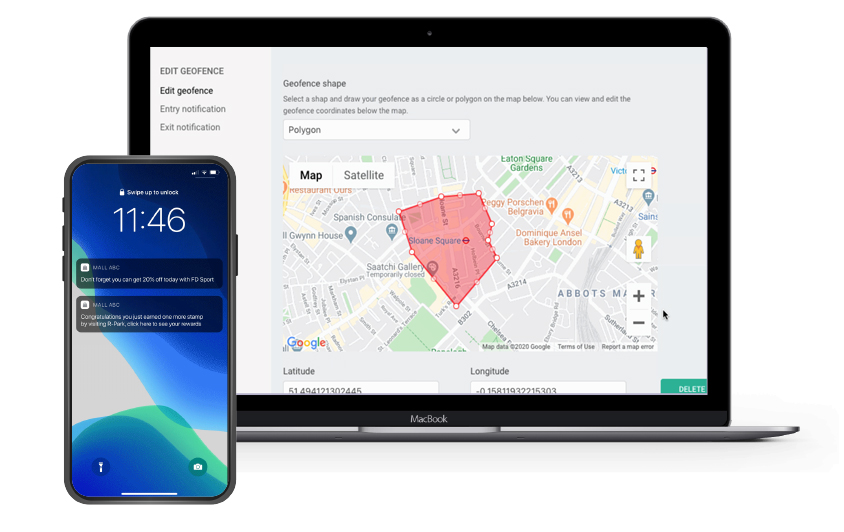During the last year, it’s become clear that shopping centers need to have an omnichannel strategy. In fact, customers increased their online shopping and have significantly changed their approach to choosing and purchasing products. Consequently, shopping centers had to adapt their businesses to a new type of customer. They had to provide further services while investing even more in their relationship with customers.
The relationship between centers and customers has increasingly become a mix of digital and physical aspects. Pablo Perez and Georgie Altman, retail experts at Google, tried to predict and understand the future of retail in various markets over five years. Their study found that retailers with an important digital offering will increase sales. By 2024, 53% of revenue coming from retail will be earned by companies with digital offerings in their business models.
In retail, apps have become a fundamental component of the digital offer and have proven to be very useful in increasing sales and customer loyalty. In fact, app customers are more loyal. spendono il 37% in più, il 34% di loro acquista più prodotti e la frequenza dei loro acquisti è superiore del 33%. .
Appare dunque chiaro che offrire una app ai propri clienti sia un elemento cruciale per il successo del proprio centro commerciale o outlet. Le ragioni alla base di tale affermazione sono molteplici, ma permettetemi di focalizzarmi sulle 3 principali motivazioni per le quali le app saranno il futuro nel nostro settore.
Apps are an omnichannel tool.
In other articles I have written, most recently, Three ways Italy’s shopping centers will reinvent themselves in the post-covid era. I expressed my opinion regarding integrating the offline and online world: the boundaries between the two worlds have merged. Shopping malls must adopt an omnichannel approach capable of offering their customers what they need when they need it through the channels they want.
Considerando la popolarità di smartphone e tablet, è naturale constatare che le mobile app rappresentano uno strumento molto efficace per garantire la continuità del rapporto con i clienti in quanto permettono ai retailer di essere con loro in ogni momento: quando si trovano a casa, in movimento o in negozio. A conferma di quanto appena affermato, basti pensare che in Regno Unito, nel 2020, i consumatori hanno trascorso regularly use their smartphones, and a significant portion of them love using apps. In the United Kingdom, in 2020, consumers collectively spent 82 billion hours through shopping apps.
Apps favor a personalized customer experience.
After downloading an app, customers can set their preferences to receive content and communications that make a difference. As interactions increase, apps ‘learn’ what consumers love and want and offer users a tailored customer experience based on relevant recommendations, personalized communications, and sought-after rewards that are genuinely appreciated and valued. In addition, apps allow the management of shopping centers to get to know their customers in-depth and to find out which aspects of their offers are more relevant to shoppers. This data is pivotal to profili clienti ricchi e dettagliati che favoriscano l’aumento di footfall e vendite. needed to drive more footfall and sales.
Apps improve communication and conversion rates.
Apps allow you to send two types of notifications: push notifications, which customers receive regardless of their activities, and in-app notifications, which are sent only when the customer opens the app. Push notifications are extremely useful for shopping centers. This communication mode allows marketers to deliver relevant offers and content based on customer preferences. These communications incentivize the visitor to buy and show a click-through rate of 40%. The effectiveness of these personalized communications is displayed in an almost immediate improvement in the conversion rate.
We are witnessing major interest in mobile apps from shopping centers worldwide. Interest is primarily driven by the fact mobile apps are one of the most effective tools to engage customers. Apps use proximity marketing to personalize communications and the shopping experience for visitors based on customer location, preferences, and behavior. A mobile app is also an accelerator for developing an omnichannel retail strategy. It should be a significant investment area now if you can effectively compete for your customer’s share of wallet.






